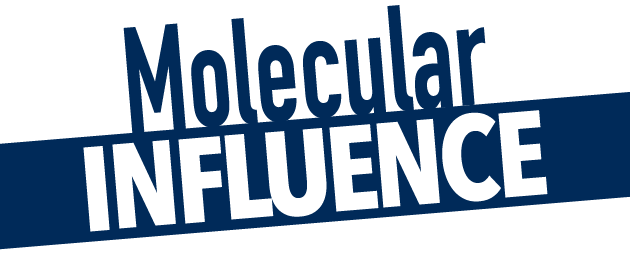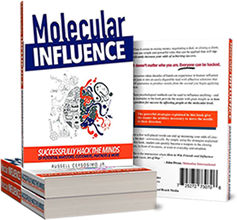In the world of influence, subtlety often beats bluntness. We’ve all been there—whether pitching a product, convincing a team member, or persuading someone to see our point of view, we know influence is an art. But what if there’s also a science to it? This is where the concept of Molecular Influence steps in. It’s not about manipulation but understanding how the human brain processes decisions and how to create persuasive techniques that resonate on a deeper, almost molecular level. Let’s dive into the foundational principles of molecular influence and explore one key strategy backed by research that can elevate your influencing skills.
What is Molecular Influence?
Molecular Influence draws from cognitive psychology and behavioral science, focusing on how small, calculated actions can trigger major responses. The theory is based on the idea that our brains rely on shortcuts or “heuristics” to make decisions. Heuristics are mental shortcuts we use to simplify decision-making, but these shortcuts can also make us more susceptible to external influences. By recognizing and subtly working within these cognitive tendencies, we can influence others’ thoughts, decisions, and behaviors.
The term “molecular” in this context refers to influencing on a foundational level, where the elements of psychology and emotion come together to guide decisions. Think of it like chemical bonds—change one molecule, and the entire compound transforms. In this way, molecular influence leverages psychological triggers, emotional appeals, and cognitive principles to create a meaningful, long-lasting impact.
The Power of Yes: Building Momentum in Influence
One of the most effective techniques within Molecular Influence is the Power of Yes, a principle built on momentum in decision-making. The idea is simple yet profound: by guiding a person to make small, initial agreements, you increase the likelihood of securing a bigger “yes” later on. This is also known as the “Foot-in-the-Door” phenomenon, a principle rooted in behavioral psychology.
A Study in Persuasion
To understand the power of yes, consider a study cited in Molecular Influence. In this study, a group of sales representatives was asked to adapt their presentations to generate three affirmative responses before they attempted to close the sale. These were small, non-threatening questions that primed the buyer’s mind, such as “Do you value high-quality service?” or “Would you be interested in saving time and money?”
The result? Sales reps who secured these initial agreements saw their closing rates soar from 18% to 32%—a 14% increase simply by engaging the power of incremental yeses. The idea here is that each small “yes” primes the brain to see the interaction as positive, making it easier for the final “yes” to feel natural and even inevitable.
Why It Works: Understanding the Psychology
The power of yes works because it taps into a psychological principle called commitment consistency. As humans, we have a strong desire to appear consistent in our actions and beliefs. When we say “yes” to small, agreeable questions, we are subtly committing ourselves to that line of thinking. The brain essentially records these affirmations as “proof” that we’re aligned with a particular perspective. By the time the big question comes, saying “yes” feels like the next logical step.
This principle is well-documented in the field of social psychology. According to Dr. Robert Cialdini, a leading expert on persuasion, “Once we make a choice or take a stand, we will encounter personal and interpersonal pressures to behave consistently with that commitment.” By leveraging the Power of Yes, you’re not just persuading; you’re tapping into an inherent need to act in a way that aligns with previous commitments.
Practical Applications of the Power of Yes
Here’s how you can start implementing the Power of Yes in your interactions to increase influence:
- Ask Simple, Agreeable Questions Early
Open with questions that are hard to disagree with, setting the stage for collaboration. For example, if you’re in sales, start with questions like, “Would you be interested in a solution that’s both cost-effective and high quality?” Or, if you’re working on a team project, ask, “Is completing this project efficiently a priority for everyone?” These small yeses lay the groundwork for future agreement. - Build Momentum with Mid-Level Agreements
After the initial yeses, introduce slightly more specific questions to keep the momentum going. For example, “Does this sound like it aligns with your goals?” or “Can you see how this solution might save time in the long run?” These questions confirm that you’re on the right track and reinforce the idea that you’re working toward a mutual goal. - Make the Big Ask
By the time you reach the critical point of your pitch or proposal, the groundwork is already set. The person is more likely to agree because their brain has already committed to this line of thought. When you make the final ask, it feels less like a decision and more like a natural conclusion.
Additional Techniques for Effective Molecular Influence
While the Power of Yes is a cornerstone, Molecular Influence encompasses various other techniques designed to engage the brain’s natural decision-making processes. Some include:
- Social Proof: Show evidence of others making the same choice. The brain is wired to feel comforted by the validation of others, which is why testimonials and success stories are so effective.
- Scarcity: Limited availability or exclusivity increases the perceived value of what’s offered, leveraging the brain’s tendency to avoid missing out.
- Priming: Use subtle cues to trigger associative thoughts in the person you’re influencing. For instance, incorporating keywords that align with your message early in the conversation can subconsciously steer thoughts toward your goal.
Influence as a Repeatable System
Molecular Influence is not about forcing a decision but about creating a systematic approach to influence based on understanding human psychology. Techniques like the Power of Yes work because they’re grounded in proven cognitive principles. When used ethically, these strategies can help you achieve your goals while building genuine rapport and trust.
So, next time you’re working to influence someone, think about those small, incremental yeses. How can you apply this principle to set the stage for a bigger agreement? Remember, influence is more than just persuasion—it’s about guiding someone toward a conclusion they feel comfortable with. And when done right, it can make all the difference.



